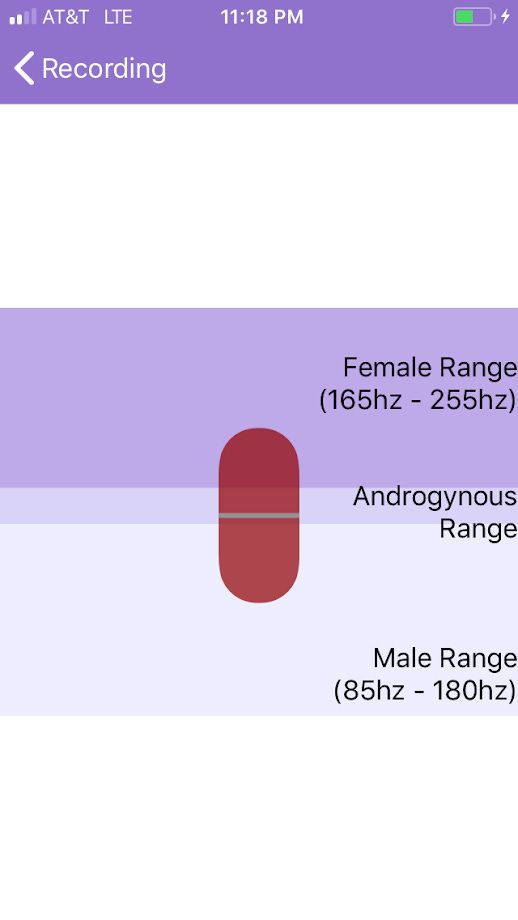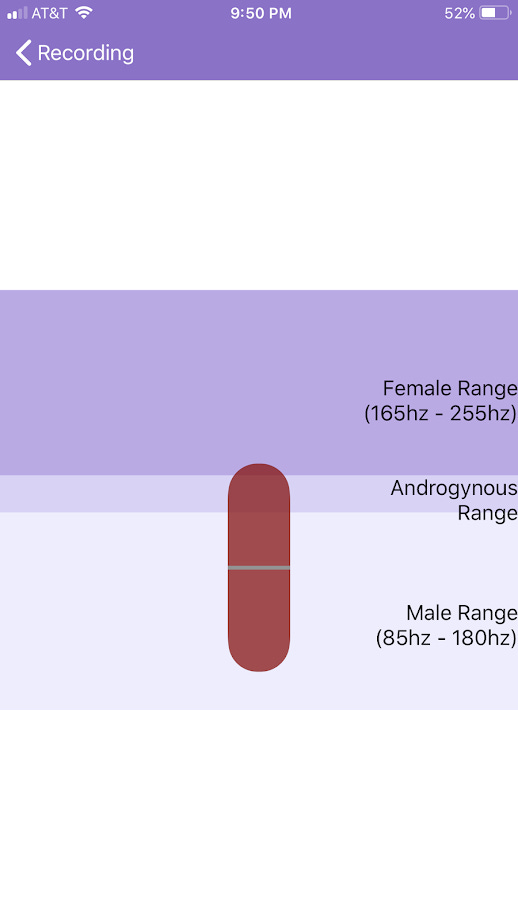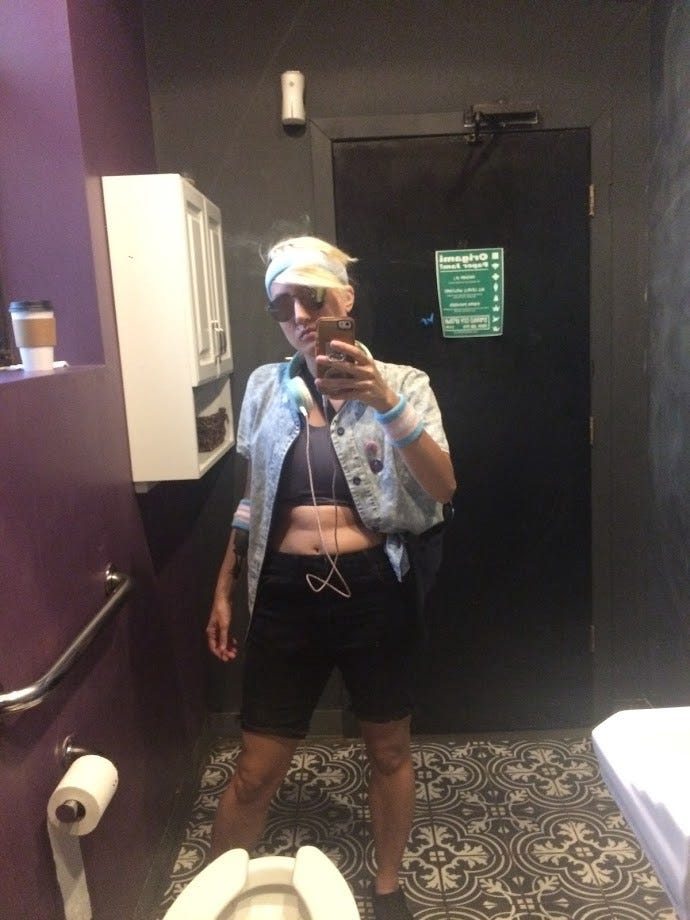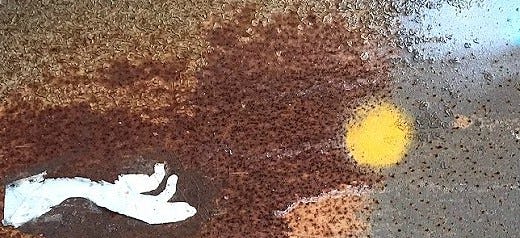The IUD Chronicles Part 7: One Year Later
I stopped hormonal birth control one year ago. Here’s what I’ve been up to since.
I stopped hormonal birth control one year ago. Here’s what I’ve been up to since.
TW: Sex, Genital Mention, Gender Dysphoria, Secondary Sex Characteristic Mention, Menstrual Mention
It’s been a great year.
Ok, ok. A lot of horrible things happened to a lot of people who didn’t deserve it in 2018. On a more personal level, I had to deal with a lot of major upheavals and secondary traumas. Many things were very challenging.
And it was a great year.
I have given up hoping for any particular year to deal me better cards than any prior year. I’m done robbing myself of agency like that. The years come, the years go, bad things happen, neutral things happen, blessings come, and we grow through it all, hopefully getting better and better at handling and contextualizing all of it. I’m not interested in personifying 2019 and begging it to treat me gently. I will not let myself be disappointed like that. I am not in control of what the world or year will deal me. I am in control of myself and how I handle it. And having that kind of courage in my own agency feels damn good.
And I don’t think I’d be taking such an agentic approach if I hadn’t stopped hormonal birth control exactly one year ago.
…
Last year, when I got my copper IUD, I blogged about the insertion and recovery process, as well as the ensuing fluctuations in my mood, libido, periods, acne, and body image. I chronicled these fluctuations fairly regularly for about two months, and then went silent. In this entry, I will recap where I’ve been in the past 10 months, how I’ve been doing, and what else is new for me on the hormone front. Let’s go!
Acne
Following an initial flare-up shortly after stopping hormonal birth control, my skin stabilized. I had a few juicy zits and patches of irritation, but within two and a half months, my complexion returned to roughly the same dewy clearness it exhibited prior to getting the IUD. I have never had utterly flawless skin, I almost always get a few zits prior to my period, but as soon as my period hits I become soft-skinned and small-pored again.
It is so, so ridiculous that fear of an acne eruption was the main thing keeping me from stopping hormonal BC for years. I was so damn insecure about my skin, for years, and so terrified of it getting any worse. This year cemented for me just how divorced from reality all those fears were. When my skin has broken out this year (for reasons unrelated to stopping BC — more on that later), it’s barely bothered me, because my mood has been stabilized and I don’t obsessively critique my appearance like I used to.
God, I wasted so much of my 20’s fretting over my flaws in the mirror and locking myself inside my apartment for fear of being seen as disgusting and sloppy. I am so happy and grateful that nowadays I can leave the house without makeup, with a few pimples on my chin, and not feel insecure or unsightly.
Mood
My mental health continued to improve throughout 2018. Stopping hormonal birth control remains just as revelatory, one year later, as it was in my initial months hormone-free. I have more energy, I cry an order of magnitude less often, I am more aware of my emotions, I am more resilient in the face of disappointment, and I feel more in control of my life and how I feel. I enjoy music, food, sex, and even TV more than I once did. Everything burns a bit brighter.
My friend Jess said that being on BC made them feel as though they were on a dimmer switch that had been turned halfway down; now that I am off hormonal BC, I know what I’m like un-dimmed. I was depressed for years, and I never realized it. I functioned well enough to not see my low moods, frequent crying, and tendency to obsess over morbid subjects as a problem. But the fog has cleared, and now I can see that I never had to live that way.
One odd side effect of no longer being depressed is that I am acutely more aware of my anxiety these days. I have more energy, I am more present and alert, and I almost never feel the grinding, self-defeating apathy that used to plague nearly every day of my life. As a result, I am a person who cares a great deal and who feels very ambitions, more so than ever before in my life. Caring and wanting that much comes with some significant anxiety and agitation.
I started in therapy in August, following a stressful change in duties at work. I could tell that anxiety was making me edgy and sometimes hyper-vigilant, and I felt both empowered and motivated to work on it. My therapist and I hit it off right away. Armed with a little extra support and some new mental health tools, the benefits of stopping birth control compounded further.
I have gotten much, much better this year at expressing my needs, processing hard feelings, and keeping it together in the face of really difficult situations. I feel like I have agency in almost every facet of my life. I experience anger, disappointment, and stress in a more manageable way than I ever have before. These feelings are instructive, like the check engine light in a car. They are experiences to listen to and learn from, rather than distressing fires that I want to snuff out.
I’ve taken a lot of bold steps this year, as a result of my increased energy, resilience, and confidence. Which brings me to a little, tiny personal detail that I can’t avoid speaking about if I’m going to accurately chronicle my body’s hormonal changes:
I’m on low-dose testosterone.

In a previous entry of this series, I said I was not interested in masculinizing my body. That’s true. I’m not a trans guy. I don’t want a beard. I don’t want a hyper-masculine physique. I don’t want super masculine facial features. I don’t really want to be seen as a man in all social situations.
But I have always been curious about taking testosterone. Some of the effects did appeal to me. I wanted a lower voice. I was curious about bottom growth and libido changes. I wanted to see my face become a tiny bit more androgynous. Having my body fat redistribute away from my breasts and my hips was also appealing. But for years I was too afraid of other effects — such as acne, hair, and body odor — to take the plunge.
But stopping birth control changed my perspective. I had already risked a hormonal and psychological tide change, and felt vastly better for doing so. I dealt with a few acne flare-ups and discovered it didn’t bother me as much as I expected it to. And crucially, having less estrogen in my body felt right. There was a greater continuity between my body and mind. I had more confidence, loved myself more, felt more vibrantly alive.
If lowering my body’s estrogen level felt good, I wondered, would boosting my testosterone feel great? I wanted to know. And Howard Brown Health Center had a program that made gel testosterone affordable and easy to get. So I took the plunge.
That was back in May. I’ve been on a low dose of testosterone ever since. I take less than half of what a trans guy, on average, would be prescribed, but enough to wrack up some serious changes. And I almost entirely love it.
…
This does makes it hard to report on the effects of stopping birth control, though. I stopped artificially boosting my estrogen via birth control in January; I began supplementing my body’s natural testosterone with Androgel in May. I can’t really report on the long-term effects of stopping birth control by itself. It’s all muddled up for me; the two effects are lumped in together. But I still want to talk about them, because they have generally been great.

Body Image

I feel so much more at ease in my body than I ever have before. I showed a lot more skin this year, scrutinized my body vastly less, and sometimes even found myself sexy.
My body was always something I wanted to shrink, shift, or escape from. I always saw it as an object that I was stuck inside of, or an accumulation of parts, many of which didn’t suit me and rarely looked right. My distaste for my body was always a distraction — a discomfort tempting me to engage in eating disordered behaviors, a source of loathing and gloominess.
This year, though, my body became me. My body is where I live, how I move through the world, the means through which I express myself and make contact with other humans. My body is inextricable from my mind, I now realize; it influences how I feel, what I perceive, what I need and crave, and how others approach me. It allows me to interface with reality, experience joy, feel pleasure, and express myself. There is no me without my body, I’ve come to realize, and that is not just fine, it’s good.
Vague exultations are great, but let’s talk specifics. Stopping birth control made my boobs smaller, a fact I already described in earlier entries in this series. Testosterone had a more profound effect; my breasts continued to shrink, and also got lighter and less full. There is less volume and fatty tissue around my breast buds, essentially. My boobs feel softer and look far less prominent on my chest. They still look like breasts, but they are much easier to bind and they are much easier for me to ignore. I don’t feel buxom, filled-to-bursting, or stuck with something deeply distressing anymore. Sometimes I even like my chest. I’ve always had a thing for small boobs.
I experienced bottom growth. It’s subtle and I adore it. My body feels more aligned and right, and sex is less dysphoric. I am physically more sensitive to pleasurable sensations; it kicks ass. I like how I look, and I feel more comfortable in how I move through the world, just knowing that change has occurred. There is more info on this topic below, in the Libido section.
My body fat has also redistributed in a more general way. I’m a little bit less hippy than I once was. I’m more muscular (by a tiny amount). I feel stronger and more firm in my abdomen, arms, chest. I think my body fat percentage is lower. I certainly have the appetite of someone whose muscle tone is increasing. I try not to think or worry about my body’s size or shape too much. But for the most part, when I do put a hand on my body or look in the mirror, I can smile at the person I see.
I don’t always feel fully satisfied with all my body’s features. I still have dysphoria. But even on the worst days, I feel a sense of peaceful detente with what I have. I can ignore the features that aren’t ideal, and still be grateful that I am alive and occupying this form. And much of the time, I genuinely feel alluring, powerful, cute, boyish, androgynous, pretty, and right in my body. And that is remarkable to me.
Periods

After stopping hormonal BC, my periods got heavier, and my cramps got more pronounced. The first and second periods following my IUD insertion were definitely the heaviest and most painful, but the flow and pain levels remained above my pre-IUD levels after that. I didn’t find this bothersome or dysphoric. I just took aspirin and changed my tampons a little more frequently. It was very manageable.
On testosterone, my periods are erratic. Trans men on high doses of testosterone typically cease having periods at all after a few months, but my dose is not high enough to consistently enjoy that benefit. I’ve skipped a few periods, and I’ve had weeks-long stretches of erratic, splotchy, dark-brown bleeding that never developed into a full-blown menstrual cycle. I’ve also had full-blown periods, with all the usual pre-period symptoms, such as increased irritability and acne.
My body is inhabiting a hormonal middle ground, though it can skew toward a more male or more female pattern depending on my daily T dose. This doesn’t bother me. I have to keep tampons on me at all times, and occasionally I will get a rogue cramp radiating from deep in my uterus. Sometimes I go weeks without any menstrual cycle symptoms. It’s not a big deal. In some ways, the odd neither-here-nor-there nature of my cycle is affirming. It reminds me that my body really has changed, become something neither male nor female.
Libido
The stories you have heard about male puberty are true! At least, they are true for me. Stopping BC made me a much more lascivious person; T has turned me kinda insatiable. I feel like I see the sexual world in color after decades of navigating it in black and white. I am physically and psychologically DTF at basically any time, and when I do have sex, it feels electric, charged with energy, crackling with light.
Sex has become this beautiful, pure, always-exciting thing for me. As a trauma survivor and a person who always felt a little physically “off” during sex (because of dysphoria), I still find this change hard to believe. Apparently people — cis people? Men? — were keeping some kind of remarkable stress-relieving secret from me all this time. You mean this is what sex is all about?It really was an awesome, big-deal thing all along? Why didn’t I try this whole testosterone-based-puberty-thing decades ago? Why did nobody tell me I could feel so vibrantly alive?
Confidence
I don’t know if testosterone really does make people more confident, or if I am just more outgoing and willing to shoot my shot now because my body and mind are in alignment. Maybe it’s a placebo effect. Perhaps I’m just more mature and competent than I used to be. Whatever the reason(s), this was a year of big bold changes for me.
This year I: pitched a play for the first time, put the play together, and acted in a major role in that play, which was something I had never done before. I interviewed for a job even though I was terrified to do it, got the job, and when the job was restructured, advocated for myself and created a new position with more high-order responsibility. I came out to tons of family and friends. I changed my name. I changed my gender marker on my ID. I confronted friends who let me down. I confronted people who were bigoted. I told a beloved friend that I didn’t have the spoons to process trauma with them, for perhaps the first time in my life.
I changed communication patterns that were causing me distress. I worked on longstanding issues in my relationship. I expressed, and got over, resentments that I had quietly held onto and ruminated about for years. I started therapy. I made new friends. I went alone to concerts and conventions. I explored new sides of myself. I started treating my anxiety. I took responsibility for the ways in which I am overly aggressive and irritable. I got better. I kept working on getting better even when crises had abated and my old temptations to escape through overwork and mindlessly scrolling tumblr reared back again.
But before I did any of that, I stopped taking hormonal birth control, and got a copper IUD. And I credit that choice with all the fantastic other choices that ensued.
2018 was a great year. And I’m so ready for 2019 to be even better.
…
To read this series from the beginning, click here: https://medium.com/@dr_eprice/the-iud-chronicles-part-1-why-im-going-off-bc4b2859367e







